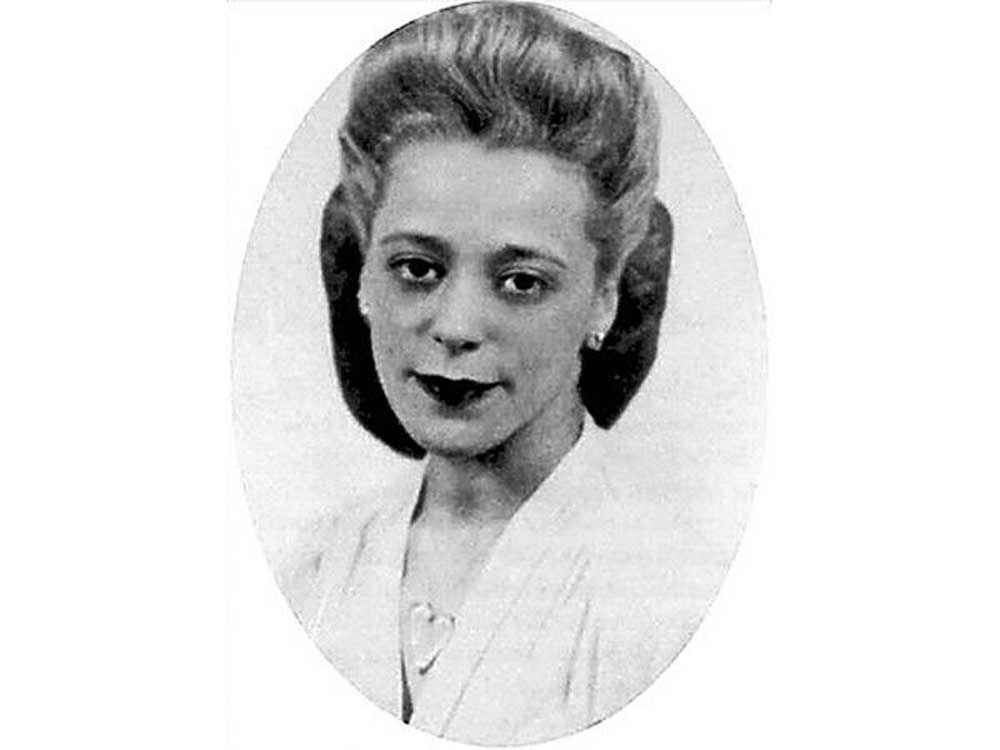‘Canada’s Rosa Parks,’ Viola Desmond, to become the first woman on a Canadian banknote
Published 8:02 am Friday, December 9, 2016

- Undated archival handout photo of Viola Desmond. (HANDOUT PHOTO: Effective Publishing Ltd., For Richard Foot (Canwest) CNS-PARDON, wikipedia.org)
Nine years before Rosa Parks refused to give up her seat on a segregated bus, Canada’s Viola Desmond was refusing to give up a seat of her own.
When she was told she had to sit in a movie theater balcony because she was black, the Nova Scotia businesswoman defiantly took a seat downstairs – leading police officers to forcibly remove and arrest her. Her subsequent court case was the first known legal challenge against racial segregation by a black woman in Canada.
Seventy years later, Desmond is making history again, becoming the first woman to appear on a Canadian banknote. The “quiet revolutionary” will replace Sir John A. Macdonald, Canada’s first prime minister, on the front of the $10 bill beginning in 2018, the Bank of Canada announced Thursday.
On the day she was arrested, Nov. 8, 1946, Desmond was waiting for her car to be repaired in New Glasgow, Nova Scotia, so she decided to go to see a movie. Unaware of the theater’s policy that black people had to sit in the upper balcony, she took a seat in the lower level. An usher told her she would have to move, because her ticket was for the balcony, according to the historical account on the Bank of Canada’s website.
When she tried to exchange her ticket, the cashier refused, saying, “I’m not permitted to sell downstairs tickets to you people.” Desmond returned inside and took her seat downstairs anyway. She was later charged and convicted of failing to pay the extra penny in theater tax required for the lower-level seat.
She tried and failed to appeal her conviction. But her case galvanized members of the black community, who knew her arrest was clearly an issue of racism, not tax evasion. Her case eventually led to the abolition of segregation laws in Nova Scotia in 1954.
“Desmond’s perseverance, and the attention generated by her case, paved the way for a broader movement to recognize the importance of human rights in Canada,” the Bank of Canada wrote. Her case eventually led to the abolition of segregation laws in the province in 1954.
Though racial segregation in Canada was not enforced in the same way as the Jim Crow laws in the U.S., there was an informal practice of segregation in Canadian places of business, like theaters, hotels and restaurants.
Desmond died in 1965 at age 50, but in 2010, the civil rights champion was granted a free pardon posthumously by former Nova Scotia lieutenant governor Mayann Francis and was issued a formal apology by the provincial government, Canadian Broadcasting Corp. News reported.
“It’s been a long time to right a wrong but you have to say something for justice, really it works sometimes,” Desmond’s younger sister, Wanda Robson, told Canadian Broadcasting Corp. News years ago. “The wheels of justice grind slowly.”
Robson, now 89, stood in front of the audience at Thursday’s ceremony as the Bank of Canada announced its decision.
“It’s a big day for a woman to be on a banknote,” she said. “It’s a really big day to have my big sister on a banknote.”
She described Desmond as an elegant, dignified woman who treated everyone with respect. “She inspired them as she inspires us,” Robson said.
Prime Minister Justin Trudeau called Desmond an “extraordinary woman,” Canadian Broadcasting Corp. reported.
Trudeau twitted, “Businesswoman, community leader, and courageous fighter against racism. A fantastic choice. #bankNOTEable https://t.co/opWH5kzqcy”
In the U.S., it was announced in April that Harriet Tubman would replace Andrew Jackson on the $20 bill, making her the first African American woman to be featured on U.S. currency. The last woman represented on U.S. bank notes was Martha Washington, on the $1 silver certificate, and several other women have been featured on coins.
Following Donald Trump’s election as president, supporters of the decision to put Tubman on the bill are now worried that it could be reversed, MarketWatch reported, considering statements Trump has previously made about the move.
“I think it’s pure political correctness,” Trump said in April on NBC’s “Today” show. He suggested that Tubman, though she “is fantastic,” be placed on another denomination. “Maybe we do the $2 bill or we do another bill,” Trump suggested.
(c) 2016, The Washington Post · Samantha Schmidt






